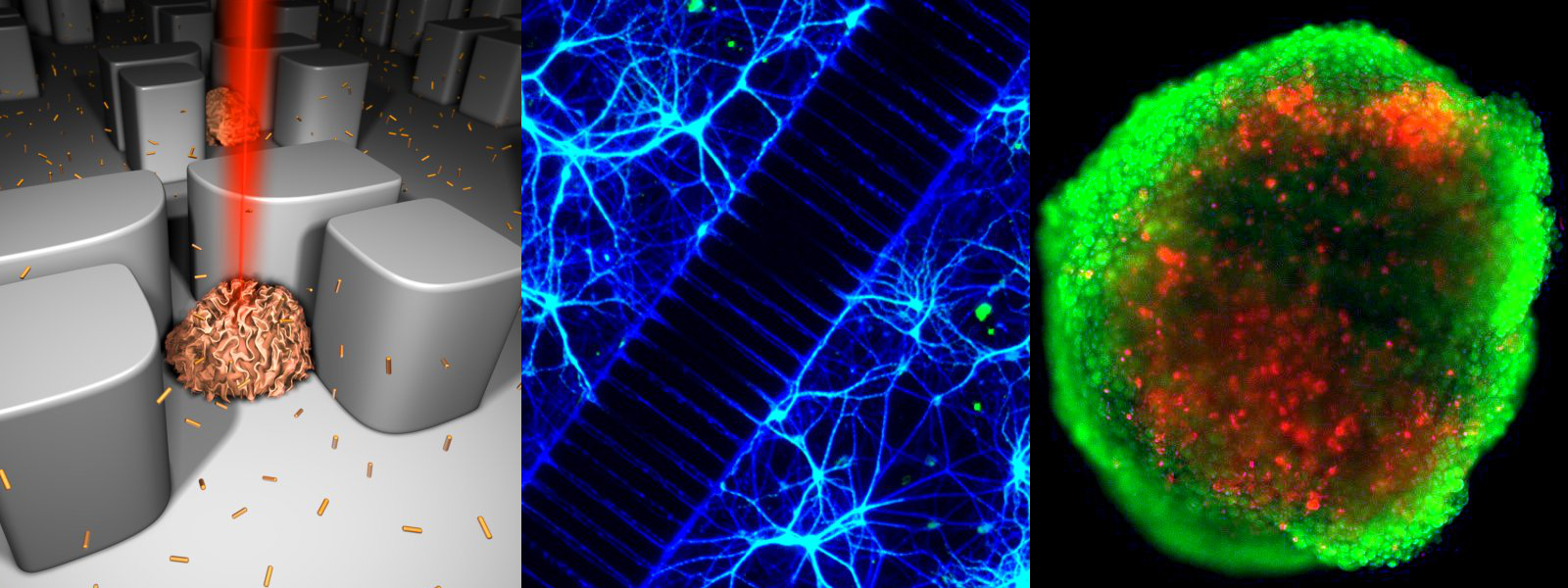The aim of our research is to provide engineering solutions for biological and healthcare applications. Microfluidic technology offers versatile, automatable and high-throughput means to enable the exploitation of bioanalytical systems to control and manipulate biological and chemical samples. Our multidisciplinary expertise, combining microsystems engineering with chemistry and biology know-how, is essential for the development of new technologies for the biosciences and industrial sectors.
We develop bespoke microfluidic systems for various biological and clinical case studies in the field of neuroscience and central nervous system disorders, cancer biology & drug screening, cell-nanoparticle interactions and artificial cell membrane systems.
Research is currently focused on:
- emulsion technologies for membrane protein studies
- droplet microfluidic techniques for 3D cell culture
- micropatterned structures for central nervous system disorder studies
- single-cell targeted nanomedicine
- organ-on-a-chip for human in vitro models
- microfluidic passive networks
- drug screening platforms for industrial applications
- microfluidic protocols for personalized medicine
